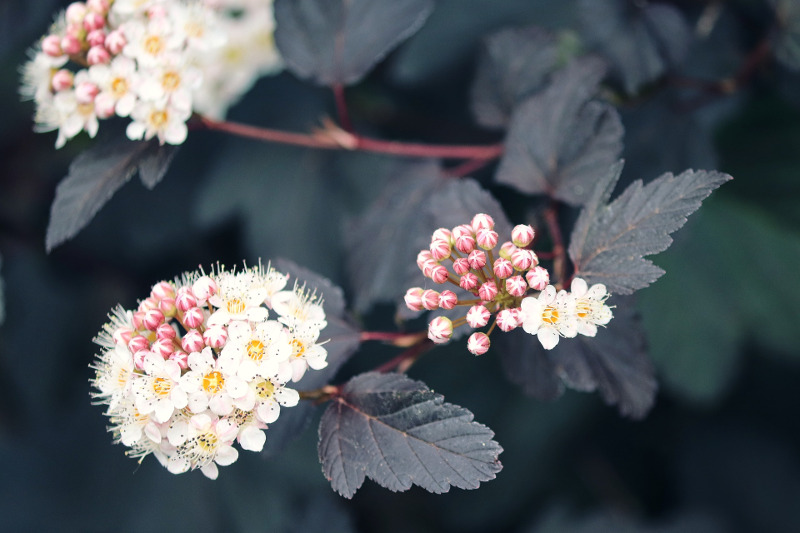If you are looking for the perfect shrub for a garden that is often frequented by deer, then Ninebark is your plant. All species of Ninebark are typically avoided by deer and other animals. October through February are the busiest months for hungry deer. It is best to remember that no plant is truly deer proof. If hungry enough, these creatures will munch on anything.
Favorite plants on the menu for deer tend to be Daylilies, Hostas, or English Ivy. Deer tend to stay away from poisonous, fragrant, thorny, or fuzzy plants. There are creatures out there that love to eat Ninebark. Caterpillars, moths, plant bugs, beetles, and aphids like to eat the foliage of Ninebark. The seeds of the shrub are eaten by some species of birds.

Keeping Deer Away From Ninebark
Typically considered deer resistant, Ninebark, along with many other plants, can appear attractive to deer. Deer love sweet smelling plants. Try planting some less than desirable scented varieties in close proximity to a Ninebark. Garlic, chive or mint would be less than pleasant options. Torny, prickly or hairy foliage plants can also help prevent a deer from snooping around. Deer can be frightened easily.
Movement or sudden noises can scare deer off. Staging windchimes, scarecrows, or movable garden ornaments nearby can keep deer away from your shrubs. A more drastic option would be to put fencing around the plants or the entire garden area.
Will Ninebark Come Back After Deer Eat Them?
If for some reason a deer or any other living creature does damage to your Ninebark, don’t worry. Ninebark shrubs are fast growers and will bounce back from the natural pruning. In fact, pruning anytime during the active growing season is perfectly fine. Oftentimes, gardeners will prune a ninebark to a desired size.
Sources: Rutgers New Jersey Agricultural Experiment Station ‘Landscape Plants Rated by Deer Resistance’ 2018
 |
Author Chris Link - Published 09-30-2021 |


